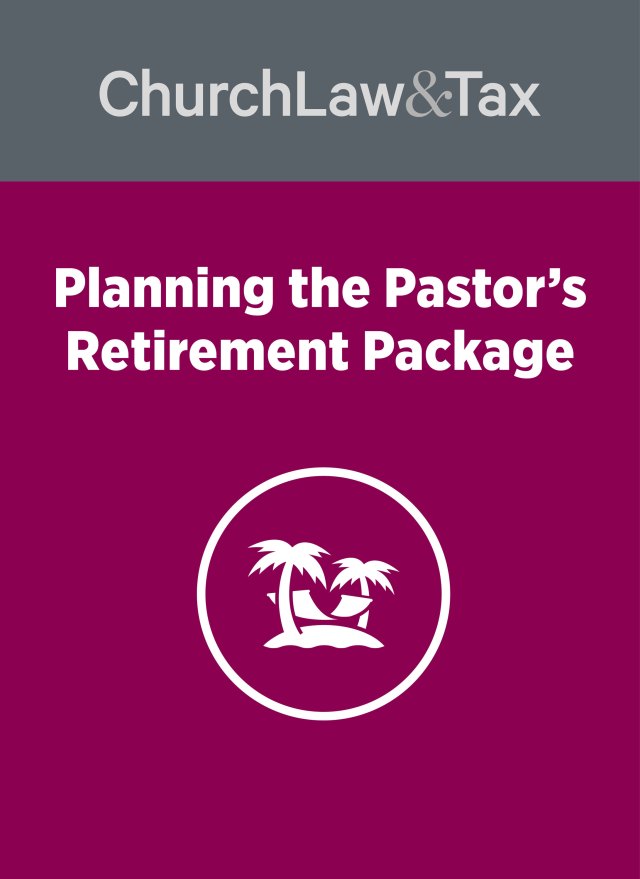Q: I just got out of a meeting with my executive pastor. He told me that the church has a policy that pastors have to retire at age 65. I don’t get it. I’m effective in my role, love it, and have a good five to ten years of ministry left in me. What should I do?
Ouch. I’m so sorry to hear this. I strongly disagree with such a policy. You have great ministry ahead of you … somewhere!
When it comes to non-pastors, there are many rules about age discrimination. When it comes to pastors, the rules are different.
Attorney Richard Hammar, senior editor of Church Law & Tax, cites an age discrimination case from a federal appeals court. The ruling said: “We believe that the free exercise of religion clause of the First Amendment also prohibits the courts from deciding cases such as this one. Personnel decisions by church-affiliated institutions affecting clergy are per se religious matters and cannot be reviewed by civil courts.” Separately, Richard covers other cases that show a more mixed position on this issue.
Going deeper, the United States Supreme Court’s 2012 ruling in Hosanna-Tabor Evangelical Lutheran Church and School v. Equal Employment Opportunity Commission reaffirmed the constitutional protection churches receive when it comes to the selection and dismissal of their ministers. Writing for the Court in its unanimous decision, Chief Justice John Roberts noted:
“Seeking to escape the control of the national church, the Puritans fled to New England, where they hoped to elect their own ministers and establish their own modes of worship …. It was against this background that the First Amendment was adopted. Familiar with life under the established Church of England, the founding generation sought to foreclose the possibility of a national church. By forbidding the “establishment of religion” and guaranteeing the “free exercise thereof,” the Religion Clauses ensured that the new Federal Government—unlike the English Crown—would have no role in filling ecclesiastical offices. The Establishment Clause prevents the Government from appointing ministers, and the Free Exercise Clause prevents it from interfering with the freedom of religious groups to select their own.”
From a legal perspective, it appears it will be difficult for you to challenge your church’s forced-retirement policy. Consulting with qualified legal counsel is still wise. But even if the legal grounds for a challenge don’t exist, you still can appeal the policy to your church’s governing board. Ultimately, they are responsible for all policies in the church.
On a broader level, I strongly recommend against age-based retirement policies for pastors. Older pastors have enormous wisdom and experience. They are vital to mentoring younger pastors and to doing effective ministry in the church.





